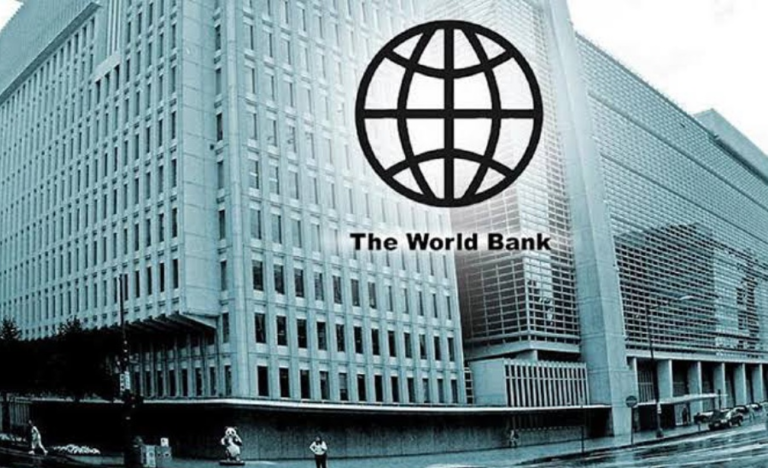The World Financial institution has projected that Nigeria’s per capita revenue will return to its pre-pandemic degree by 2025.
This outlook comes because the nation’s economic system is anticipated to witness a gradual enchancment within the coming years, in accordance with the financial institution’s Global Economic Prospects report for January 2024.
The Sub-Saharan African (SSA) area, together with Nigeria, skilled a slowdown in financial progress to an estimated 2.9% in 2023, primarily as a consequence of country-specific challenges similar to greater enter costs for companies in Nigeria.
The area’s three largest economies – Nigeria, South Africa, and Angola – noticed their progress fee gradual to a median of 1.8% in 2023.
The Sub-Saharan Africa (SSA) area, the place Nigeria is the most important economic system, skilled a deceleration in progress to an estimated 2.9% in 2023, decrease than the sooner projection.
Nigeria’s progress in 2023 softened to an estimated 2.9%, influenced by numerous components together with providers progress weakening as a consequence of a disruptive foreign money demonetization coverage.
Nevertheless, there was a rise in annual oil manufacturing after earlier years’ decline.
Nigeria’s economic system to develop by 3.3% in 2024
Trying ahead, Nigeria’s financial progress is projected at 3.3% for 2024 and three.7% for 2025. These projections are 0.3 and 0.6-% factors greater than previous estimates made in June final yr.
This enchancment is anticipated because of the gradual impression of macro-fiscal reforms initiated by the federal government.
Key reforms have included eradicating the gasoline subsidy and unifying the alternate fee, which, regardless of inflicting short-term challenges, are deemed essential for long-term financial stability and progress.
Development within the coming years is anticipated to be pushed by sectors like agriculture, development, providers, and commerce.
Furthermore, inflation is projected to ease progressively as the results of final yr’s alternate fee reforms and the removing of gas subsidies fade away.
The report learn:
- “Development in Nigeria is projected at 3.3 % this yr and three.7 % in 2025—up 0.3 and 0.6 share factors, respectively, since June—as macro-fiscal reforms progressively bear fruits. The baseline forecast implies that per capita revenue will attain its pre-pandemic degree solely in 2025.
- “Development is anticipated to be pushed primarily by agriculture, development, providers, and commerce. Inflation ought to progressively ease as the results of final yr’s alternate fee reforms and removing of gas subsidies fade. These structural reforms are anticipated to spice up fiscal income over the forecast interval.”
- Nevertheless, you will need to notice that whereas the World Financial institution’s report is optimistic about Nigeria’s financial progress and per capita revenue returning to pre-pandemic ranges by 2025, this restoration is contingent on the profitable implementation and continuation of the present reform momentum.
Extra Insights
The World Financial institution’s projection on per capita revenue is much like a projection by an analyst on the international funding financial institution Morgan Stanley, who said the reforms made by the present president of Nigeria, Bola Tinubu, could result in a powerful enhance in annual revenue regardless of the problem they pose for financial progress.
- Particularly, the analyst, Steven Quattry, famous that Tinubu’s reforms may result in a brand new shopper class and entice funding alternatives.
- The Federal Authorities carried out daring reforms to avert a fiscal disaster, together with ending the gasoline subsidy and shifting to a unified, market-reflective overseas alternate fee.
- These reforms have resulted in vital changes, similar to a substantial enhance in retail gasoline costs and a depreciation of the naira towards the US greenback.
To help these affected by these changes, the federal government launched a cash transfer intervention to offer reduction to the poor and susceptible, to cowl 15 million households.
Within the medium time period, the financial outlook for Nigeria hinges on the continuation and effectiveness of its macroeconomic stabilization agenda.
With the implementation of those reforms, Nigeria’s economic system is anticipated to develop at a median annual fee of three.5% throughout 2023–2026.
Nevertheless, this progress is dependent upon the sustained and full implementation of those reforms and complementary actions.
- Whereas progress is anticipated to be primarily pushed by sectors similar to agriculture, development, providers, and commerce, there are dangers together with excessive inflation and the necessity for additional financial reforms.
- The World Financial institution report highlights the significance of sustaining the reform momentum and consolidating fiscal and financial insurance policies to reinforce progress prospects.


